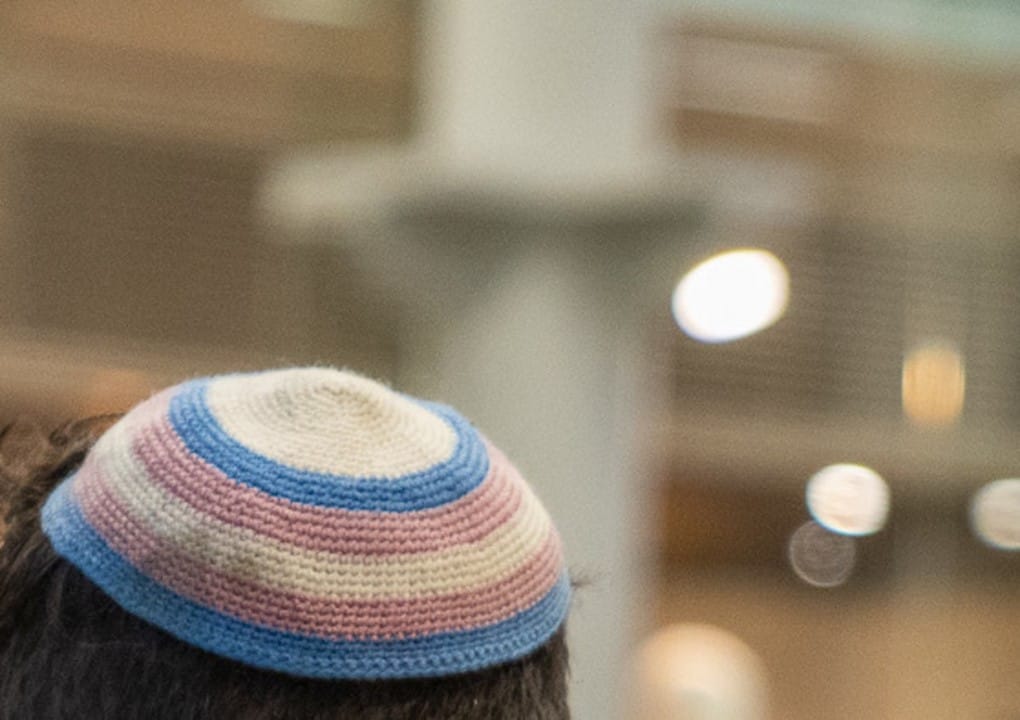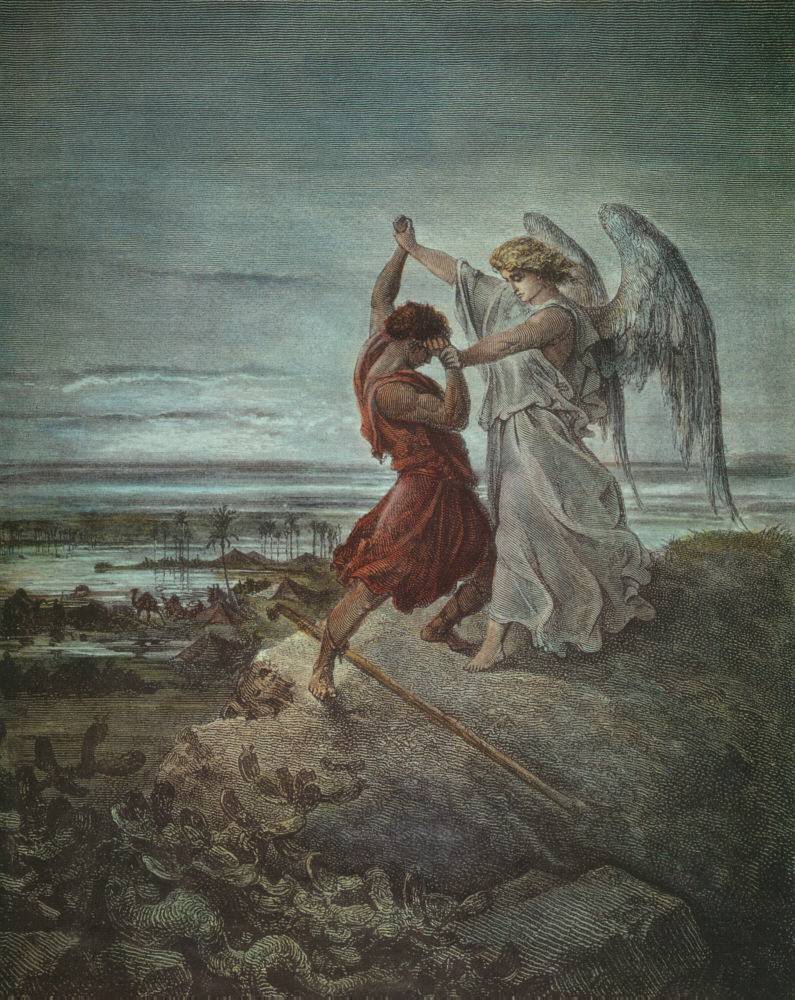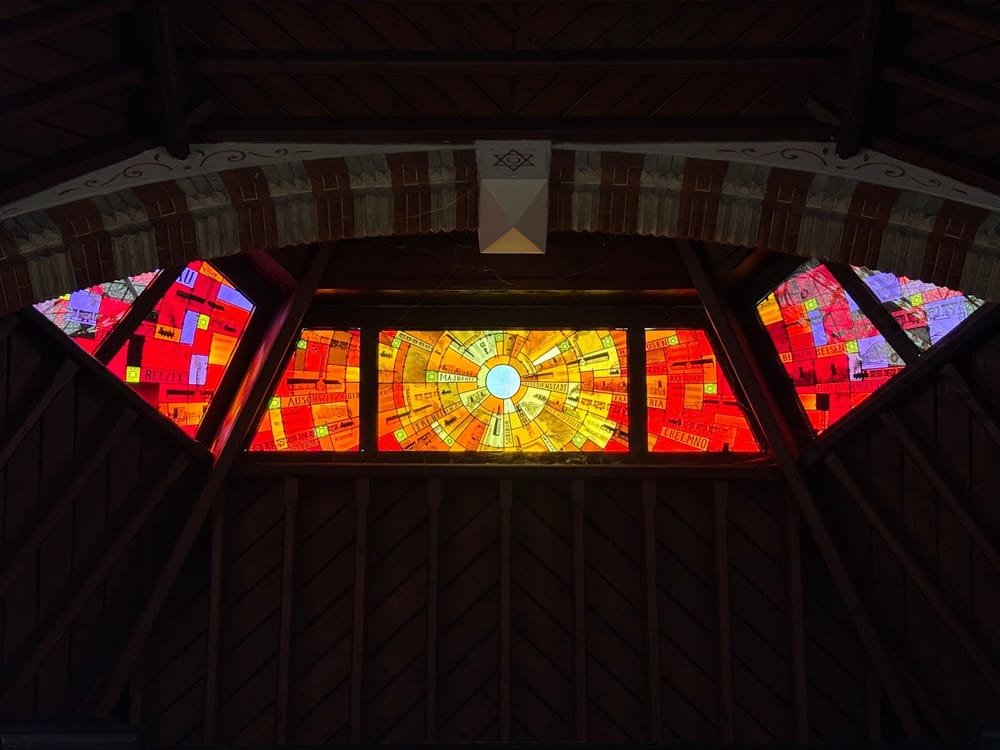‘Again and again’: Transness and recognition
Transness implores us to know each other again, and again.

Crossing over to the other side of the mechitza in your early twenties leaves much to be desired.
It should have been a defining moment in my gender career, destined to become one of those anecdotes whipped out for dramatic effect at dinner parties when asked how I knew my transition was “complete”, probably accompanied by some clichéd rhetorical flourish like: “Finally, I was recognised as the man I always knew myself to be.”
Having so far managed to swerve the agonising question of where to sit on account of my Masorti congregation offering two egalitarian services alongside a United Synagogue-style gender-segregated one, duty called in the form of my best friend’s brother’s bar mitzvah – which, owing to timetabling constraints, was to take place in the latter. Newly emboldened by a few months on testosterone, I decided to grip hold of that narrow choice with both hands and plonk myself down on the men’s side of the division.
If, as per the great Jewish scholar Maimonides, separating the genders (only two, it seems) is in order that the men not gaze at the women, I wonder what the rabbis would have made of this trans guy’s habit of casting a longing eye over to the women’s aisles – deprived, suddenly, of my friend Ruby’s life-giving laughter, Lena’s poking fun, and Rach’s unparalleled ability to find humour in the most boring of situations.
Rebecca Schischa writes that it is “on the other side of the mechitza that all the real action [takes] place”. I beg to differ. The women’s section is where friends who’ve stuck with me ever since my bandana-wearing summer camp days sit, leafing through prayer books that we weren’t taught to read properly, chatting away in only slightly more hushed tones than usual. No one warned me that the men’s section would be such a colossal bore. Or that it would reveal something about how even the recognition we so desperately crave – in my case, recognition as a Jewish man entitled and expected to sit in the men’s section – can leave us feeling cold.
Yearning for something or somewhere else, even to be someone else makes easier sense pre-transition. I’m riffing off the literary critic and reigning Marmite of transgender studies Andrea Long Chu here, who argues that transition expresses “not the truth of an identity but the force of a desire”. Her framing of transness as a matter not of what one is but of what one wants is controversial enough on its own terms, jarring awkwardly with the trans-normative diktat that we are “always already” men, women or something else entirely. But if transness isn’t supposed to be a site of desire, let alone multiple conflicting ones, what are we to make of the lingering of that desire for something else, even after you’ve changed your pronouns, gone under the knife and secured that hallowed “sir” countless times at the supermarket checkout?
We spend enough time exhausting ourselves by arguing that trans people deserve to be recognised as the genders they are, whatever that means outside of abstract philosophising. Why risk sabotaging that by admitting that how we want to be recognised isn’t so clear-cut, or by demanding more than the categories of recognition available to us?
The mechitza represents a distillation of that dilemma, or the violence of cisgender recognition more broadly. Whether a physical barrier, upstairs-downstairs situation, or gap between chairs, its dividing line forces bodies into line. My dysphoric mechitza experience, if we can call it that, was not the result of being recognised as a man per se, so much as being a man in a space that attempts to discipline manhood and womanhood into mutual exclusivity, where I could not be both/and but only either/or. Nor is this a uniquely “trans” experience: the many Jewish-feminist critiques of the mechitza can be similarly read as in some sense dysphoric if we take seriously the American writer Patrick Califia’s provocative suggestion that feminism itself is an expression of gender dysphoria, a discomfort with what has been assigned.
Last Rosh Hashanah I turned up to shul for the first time in years, against my better judgment, only to do what everyone does on the High Holy Days: bump into the parents of a childhood friend. These people had cooked me dinner twice a week when I was 11 and taken me to football every Sunday, yet seemed to have absolutely no clue who I was. I felt like a kind of living ghost or someone wearing an invisibility cloak, seeing but unseen. Here’s the rub: insofar as they recognised me as a man, they didn’t recognise me.
Many trans people, for reasons entirely pragmatic, want to fade into the background. I, meanwhile, “come out” as trans almost compulsively. Less a confession, or a preemptive strike against the possibility of being nonconsensually exposed, this is a desperate request to be recognised beyond the bounds of cisgender masculinity. But, insofar as neoliberal identity politics has reduced “trans” to a special interest group which slots neatly into another crummy binary of cis/trans, I’m not after recognition as trans but instead something altogether more elusive: a kind of trans* recognition. All recognition may be only the “misrecognition you can bear”, as the philosopher Lauren Berlant teaches us, but this mode of recognition – one which, however paradoxically, suspends the urge to nail down its object once and for all – is the only form I can bear.
At my grandmother’s funeral, I practically clung to my mum in the hope that the other attendees – most of whom I’d met countless times over the years at various wedding anniversary parties – would put two and two together and realise who I was. I got mostly blank looks and one particularly angry stare from someone who presumably did manage to put two and two together but didn’t like that the sum equalled “transgender”. I would have spent most of the time wishing one of the graves would open up for me to hide in were it not for the frum rabbi who shook my hand and wished me a long life.
“This is your son?” the Rabbi asked my dad as we walked side-by-side behind the coffin. “Yes – Mizy,” he replied, without batting an eyelid.
I remember the first time my dad pointedly flicked a kippah at me so that we could begin saying Kiddush on Shabbat evening. This is a man who used to give Douglas Murray’s The Madness of Crowds: Gender, Race and Identity pride of place on our bookshelf and once died on the hill of insisting that my wish to be referred to using they/them pronouns was an affront to the rules of English grammar. Yet he has somehow come to recognise me as his son.
My parents are under no illusions about the way I was born. Theirs is a form of recognition true to its most pedantic etymological roots, the combination of Latin re– and cognōscere, “to know again”: a willingness to know me differently from how they knew me before while still knowing me as me. Or rather, a willingness to know me differently from how they knew me before so that they can know me as me.
My friends, too, have embraced me in and through getting to know me again (and again, and again, and again). In and through every name change, new pronoun request, and voice drop, it is their open-ended recognition, their ability to hold me without seeking to house me in the narrow boxes of “M” or “F”, that allows me to feel at home. The trans scholar Marquis Bey alludes to this form of recognition in their auto-theoretical, imaginary email exchange between themself, or “X”, and their own non-binary gender: “[Y]es, I see you, and even though you’re imaged in the likeness of something I’m yet to see, I see that I’ve not yet seen you, but I still, now, will love you.”
So on those rare occasions when I part ways with my friends towards the men’s side of the mechitza, or, as is much more common, linger awkwardly outside the women’s toilets waiting to be reunited, I trust that they recognise me as something close to who I am – and whoever I might one day become.▼
Mizy Judah Clifton is a journalist and writer based in London.
Author
Mizy Judah Clifton is a journalist and writer based in London.
Sign up for The Pickle and New, From Vashti.
Stay up to date with Vashti.



